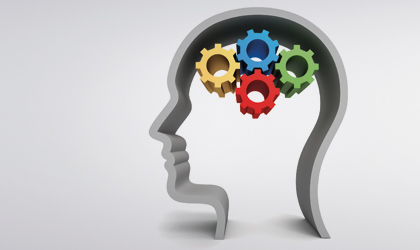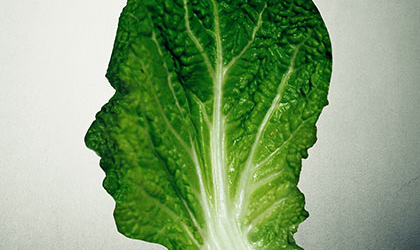
Of the energy the body produces the brain uses a massive 20%; armed with this information it is crucial to ensure the foods we consume provide adequate nutrition to support our control centre. Poor energy production can create symptoms such as memory problems, fatigue and difficulty concentrating. In a very digestible nut shell, the brain benefits from 5-10 pieces of fruit and vegetable per day – this could come in the form of a soup, stew, snacking dried fruit or smoothies; chances are you are well on the way to hitting that target. To get you thinking; why not count the portions of fruit and vegetables you’ve consumed today? But what is a portion of fruit or veg you may ask? The NHS have clear guidelines on what constitutes as a portioni. We’ve highlighted a few for you below.
Fruit:
-
Two or more plums, two satsumas, three apricots or seven strawberries
-
One apple, pear, banana, nectarine or orange
-
Half a grapefruit, one large slice of pineapple or two slices of mango
-
30g/one heaped tablespoon of dried fruit
Veg:
-
Two broccoli florets, four heaped tablespoons of cooked spinach or kale
-
Three heaped tablespoons of cooked carrots, peas, sweetcorn or eight cauliflower florets
-
One medium tomato or seven cherry tomatoes, 5cm piece of cucumber or one-and-a-half sticks of celery.
Carbohydrates
They really are essential and not all are “bad” for you. Good choices can be
brown bread, whole wheat pasta, brown rice and cereals. As a rule of thumb, if the food is white, for example white bread, then it’s likely to have been highly processed to get that commercially attractive colour. Carbohydrates are your bestie (best friend) for improved concentration and mental performance.
Essential fat
Intake is easily achieved if you eat oily fish; mackerel, sardines, herring, or eggs and lean meat. The brain consists of 60% fat, a fifth of which is composed of the essential fatty acids known as omega 3s and omega 6s. These brain supporting nutrients are not produced in the body so including eggs, avocados, poultry and nuts will cover the omega 6s but omega 3s are mostly found in oily fish, seeds and nuts.
Protein
Commonly found in lean meats, fish, pulses, legumes and tofu. Its primary function is for growth and repair. It is also good practice to limit sugar and salt, as recommended by Public Health England. A healthy, balanced diet is the bedrock for good brain health. But making leisure time, being active and planning ahead to mitigate anxiety when travelling or doing something new, is also good advice.
Did you know?
When awake the brain can generate approximately 23 watts of power
Antioxidants - what role do they play in cognitive health?
The compounds in food sources known as antioxidants play an integral role in brain health. They serve to protect body cells from harmful waste products produced by normal body processes, such as metabolism. When food is metabolised for energy, oxygen is required, and useless by-products are created (free radicals)ii. These pesky free radicals are unstable molecules that accelerate cell atrophy. As we age, our ability to cleanse the body of these toxins is less effective; the resulting condition is called oxidative stress and is thought to contribute to age related illnesses. Brain cells are particularly vulnerable to oxidative damage due to its demand for 20% of the body’s oxygen. Increasing your intake of antioxidants can contribute to cognitive health so it’s worth including some of the following food sources to your daily diet.
Antioxidants can be categorised into two groups;
Flavonoids
Mainly found in plants and include:
-
Anthocyanidins: red grapes, blueberries, grapeseed, bilberry
-
Catechins: dark chocolate and tea
Non-Flavonoids
Found in plant pigments and included:
-
Carotenoids: – carrots, oranges, butternut squash
-
Minerals: selenium – eggs, Brazil nuts, grains and fish and
-
Vitamins: C – citrus fruit, broccoli, strawberries and E – almonds, sunflower seeds, leafy green vegetables
References:
-
NHS UK. (2018). 5 A Day portion sizes. Available online: https://www.nhs.uk/live-well/eat-well/5-a-day-portion-sizes [Accessed 31 August 2018]
-
Alzheimers.net. (2018). How Do Antioxidants Lend Themselves to Brain Health? Available online: https://www.alzheimers.net/antioxidants-lendthemselves-to-brain-health [Accessed 31 August 2018]
You Might Also Like

Keri
Keri Filtness has worked in the Nutrition Industry for 19 years. She is regularly called upon for her professional comments on health and nutrition related news. Her opinions have been featured by BBC3, Prima, Vitality, The Mirror, Woman’s Own and Cycling Weekly, amongst others. She has also worked one to one with journalists, analysing their diets and health concerns and recommending changes and additions, where appropriate.
View More



